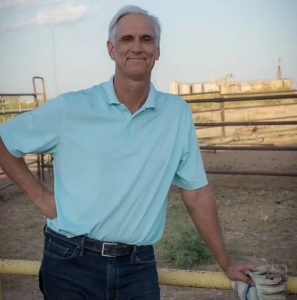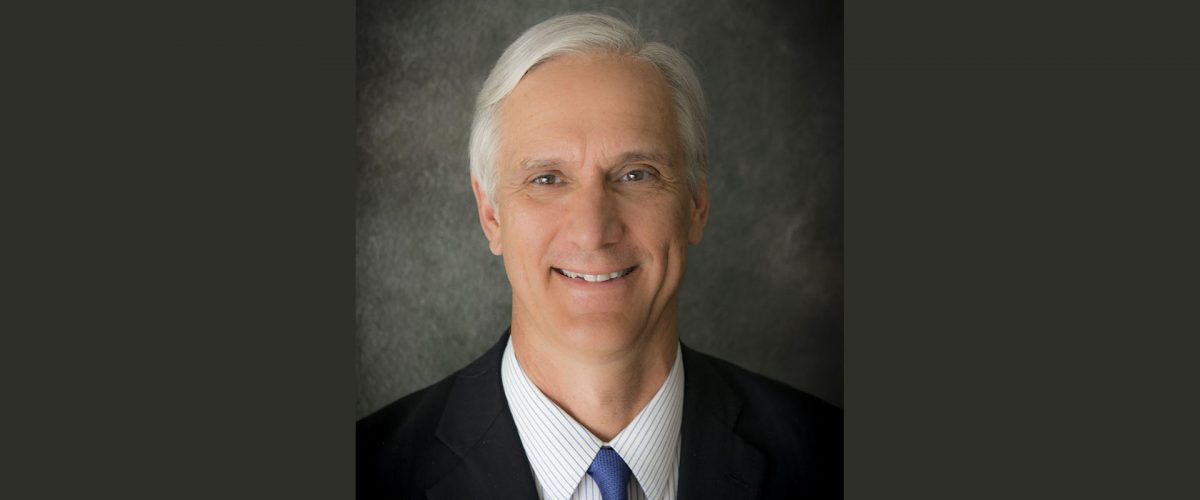In the land of Lyndon Baines Johnson, George Herbert Bush and George W. Bush, you may not have heard of billionaire Tim Dunn. Although billionaires do seem to grow naturally in Texas.
Dunn is among at least 44 known billionaires in Texas, along with Elon Musk, Michael Dell and Alice Walton.
All those names are better known than Tim Dunn, but his behind-the-scenes influence is just as great or greater.
Dunn doesn’t even appear on the Forbes list of Texas billionaires. According to Russell Gold, writing in Texas Monthly: “The state’s most powerful figure, Tim Dunn, isn’t an elected official. But behind the scenes, the West Texas oilman is lavishly financing what he regards as a holy war against public education, renewable energy and non-Christians.”
Who is Tim Dunn?
Dunn, 68, is a Texas oilman. He is chief executive officer of CrownQuest Operating, an oil and gas business. He controls most of the oil leases in the Permian Basin. Fracking has made these oil fields among the richest in the nation.

Tim Dunn
Dunn seems the stealth billionaire, but his mission is clear. He is the financial power behind Texas Gov. Greg Abbott and the Texas Republican Party, including the quest to pass school voucher legislation — something not yet accomplished. He also was the power behind the failure of the Texas Senate to convict Texas Attorney General Ken Paxton after he was impeached by his own party in the Texas House.
Causes and politicians funded by Dunn include First Liberty Institute, a nonprofit law firm with a $20 million budget fighting for evangelical religion in the public sphere; Empower Texans PAC, $14 million donated to help elect right-wing radicals in Texas; Conservative Action for America PAC; Defend Texas Liberty PAC, which spent $15.8 million starting in 2020 on Texas elections. Dunn’s “hit” men operate Texans for Fiscal Responsibility, which gives members of the Texas Legislature grades on bills Dunn wants passed. A low grade targets legislators for reprisals and often drives them into retirement.
Dunn also is a conservative lay pastor in Midland, Texas. He isn’t Kenneth Copeland, the richest preacher in Texas with a net worth of $700 million. He doesn’t have the charisma of Joel Osteen, the preeminent health and wealth preacher from Houston. But he’s richer than either of them. There’s more money in producing oil than selling snake oil on television.
Denying Christian nationalism
Yet Dunn, like his fellow preachers, is selling a particular product with some strong-arm tactics. Now, he wants everyone to know he couldn’t possibly be a “Christian nationalist” — because his Christianity is a direct expression of the clear teachings of Jesus which just happen to match the teachings of America.
In a recent opinion piece for the Midland Times, Dunn said the “Christian nationalist” label does not apply to him.
And besides, that’s “a made-up label that conflicts with biblical teaching,” he says.
When a man denies being a Christian nationalist using Christian nationalist talking points, odds are he has read the playbook. Dunn’s denial reads like a confession.
For example, he mixes biblical faith with American ideals of freedom, plurality and free will. The toxic mixture gives off the same noxious fumes as the Trump Bible with its inclusion of the founding documents of the United States.
“Dunn pretends ‘Christian nationalism’ is a recent slogan concocted by liberals to persecute him.”
Dunn pretends “Christian nationalism” is a recent slogan concocted by liberals to persecute him. That is a false claim. Christian nationalism has been around for more than 500 years. Robert Jones, in The Hidden Roots of White Supremacy, convincingly roots Christian nationalism’s first appearance in 1453.
Yet Dunn speaks of Christian nationalism as if it is a varmit wandering onto his Midland estate by accident and needing to be eliminated with a blast from a single barrel 16-gauge shotgun. He disparages the term as “something called ‘Christian nationalism.”
Then he attempts to invoke Christian language: “Our primary identity as believers is as a member in the body of Christ. This is an expression of plurality, with each person being a unique part of the body, united by one Head, who is Christ. ‘Christian’ is sufficient, because Christ is the Head and the Center, and believers spiritually unite together in him.”
This confusing ploy equates Dunn with Jesus and plurality, yet plurality is one of the democratic experiences Dunn wants to destroy.

Tim Dunn on the cover of Texas Monthly
Texas Monthly explains: “If you ever wonder why state laws and policies are more radical than most Texans would prefer, the answer has a lot to do with Dunn and his checkbook. If you question why Texas’s elected officials no longer represent the majority of Texans’ views, the reason can be traced to the tactics employed by Dunn and the many organizations and politicians he funds and influences. He has built his own caucus within the Legislature that is financially beholden to him. And despite his Sunday school pleas for comity, Dunn has deepened Texas’ political divisions: there are the Democrats and what remains of the mainstream conservative Republican Party. And then there are Dunn and his allies.”
Dunn engages in Christian double-talk in his op-ed, claiming “a spiritual identity as a Christian-Something is to make the ‘Something’ preeminent over Christ. That conflicts with the core tenets of Christianity. Embracing a Christian-Something term conflicts with the biblical teaching that Christ is the center and focal point of our Faith.”
His own words condemn him since the “something” interfering with his relationship with Jesus appears to be a desire to dominate Texas politics.
Dunn seems determined to put rulers in power to hold authority over everyone. Yet Jesus says his followers will not lord it over people. Dunn commits the very acts he condemns.
And in a further example of the very definition of Christian nationalism, Dunn declares: “America was founded on the same type of pluralism reflected by the concept of the body of Christ. America’s national motto reflects the very essence of Christian pluralism: E Pluribus Unum (from many, one). It is an indication of our historic commitment to the principle of self-governance, which is both a tenet of our Judeo-Christian heritage and foundational for our republic.”
E Pluribus Unum is not exactly “for God so loved the world.”
According to Dunn, “America is exceptional in part because we rejected European authoritarianism, some of which was cloaked in Christian trappings. Their flawed approach was to build a ‘Holy Roman Empire’ that replaced God as king with earthly kings who claimed God’s authority. It resulted in a governmental system of elites who exploited everyone else and allowed for the whims of mortals to lord over others based on bloodlines and raw power. All in opposition to the teachings of Christ.”
“He embodies the very thing he says he opposes.”
Can he not see the irony of his own words? Just replace the “Holy Roman Empire” with his “Holy Texas Empire.” He embodies the very thing he says he opposes.
And his appeal to “American exceptionalism” is a standard trope for evangelical demagogues pushing the notion that America was founded as a “Christian nation.”
‘Follow the money’
Woodward and Bernstein, in their reporting of Watergate, popularized the phrase “Follow the money.” To understand how corruption works, follow the money.
That’s certainly the case with Dunn, who finances what he sees as a holy war against everyone who isn’t his kind of Christian. In an extended critique of Dunn, Texas Monthly labeled him “The billionaire bully who wants to turn Texas into a Christian theocracy.”
In his view, politics, work and religion all run together. He told Texas Monthly: “I don’t have one approach in business and another approach in ministry and another approach in church. … I work for God, and God has given me a bunch of jobs to do.” He is convinced one of those jobs is making Texas the most conservative state in the Union.
This is a sacred mission.
“When we go into governmental politics, we’re going into the darkest places,” he said in 2022. “And we have the opportunity to make disciples in the places that need it the most. It is a high and holy calling.”
He is up-front about his desire to use politics to pave the way for a “New Earth,” in which Jesus Christ and his believers will live together.
He believes only Christians should hold elective offices in Texas.
He promotes private Christian schools over public education. (Dunn contributed to a failed effort to defeat a $1.4 billion bond for Midland public schools.)
For him to claim he’s not a Christian nationalist is simply disingenuous. And it’s a different tack than other Religious Right leaders have been taking lately, proudly claiming the label and then justifying it’s a good thing, not a bad thing.
Paraphrasing the words of Emil Mazey, secretary-treasurer of the United Auto Workers Union in 1946: “I cannot prove you are a Christian nationalist. But when I see a bird that quacks like a duck, has feathers and webbed feet and associates with ducks — I’m certainly going to assume he is a duck.”
On all counts, Tim Dunn passes “the duck test.” He is a Christian nationalist.
Rodney W. Kennedy is a pastor and writer in New York state. He is the author of 10 books, including his latest, Good and Evil in the Garden of Democracy.


